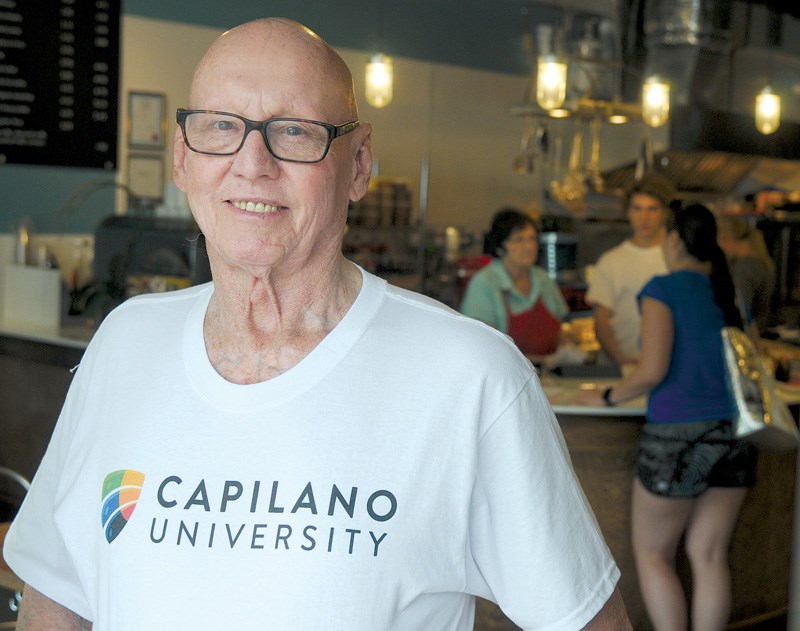Parents were thrilled when they learned that David Goelst would be opening a new school in their community.
The year was 1974 in Zimbabwe, then called Rhodesia, and the minister of education was scrambling to get a school in place after a mining company bought a nickel mine and essentially built a small community around it.
Goelst got the call.
“The parents were very happy to have their children on the property in the town rather than be bused very early in the morning 60 kilometres on a not-wonderful road,” Goelst explains.
“And also, of course, there was a war going on. The threat of ambush was of great concern to all of us.”
That civil war, known as the Rhodesian Bush War, took place from the mid-1960s and concluded in 1979, eventually leading to the dissolution of the colonial state.
Goelst was born there, spent his formative years there, and also started his career in education there.
Although Goelst is now 73 years old, education and a love of learning has never really left his side.
In June, he crossed the stage at Capilano University to receive a diploma in General Studies. But his CapU career is ongoing – he’s currently in the midst of upgrading his credential to a degree in Communication Studies, a field he’s passionate about due to his love of language.
While the road to get to Canada wasn’t always clear, his reverence for education always has been.
He started teaching right out of teachers college in 1965. He says he had an amazing career because he generally seemed to be “the right person in the right time in the right place,” like in the early-1970s when he was transferred to a school in another part of the country to take on the role of acting headmaster.
“We built the school up, there was great moral, the teams started winning all sorts of fixtures and even taking part in inter-provincial matches in sports, which they hadn’t done before,” he says.
It was this tenure that led to the education minister calling upon him some years later. “I had a wonderful, wonderful career in education.”
But after years of escalating civil war in what was soon to become Zimbabwe, Goelst and wife Barbara decided they needed to leave the country.
“We crossed the border into South Africa and set up home there,” he says.
While in South Africa he made the transition from a career in education to one in financial services, working as a senior manager for a large banking group.
Like many things he does, Goelst sustained himself with education.
He recounts a time in 1989 where, on behalf of the company he was working for, he went back to school for business development training in Johannesburg.
“Even then in 1989 technology had started moving into classrooms, whether it was schools or universities,” he says. This was a world of a difference compared to the pen, paper and typewriter Goelst remembers back when he was first a university student.
Fast forward to the present day and Goelst was once again happy balancing education and new technology. “Coming to Capilano University, which is state-of-the-art in teaching methods and culture – and certainly on the technology side – I had a lot of catching up to do,” he says.
Eight years ago, Goelst and his wife moved to North Vancouver after visiting their daughter who resides here.
They fell in love with the place and decided to stay, eventually applying for permanent residency.
Goelst says there was challenging moments when he first started attending CapU four years ago. “I was in a state of shock. I didn’t know what a blog was and I didn’t know how to set one up,” he says. “My goodness I’ve learned a lot since then.”
When he finds the time – he and his wife recently opened a cafe on Marine Drive called The Baker and Baron – he maintains a personal blog where he reflects on his life in the African continent. He credits his success to the support from his wife and family over the years.
“They’ve really stood by me,” he says.
He likes to think of his recent crossing of the stage at CapU as just another moment in his educational career, not the end of it. “I think I’ll carry on studying for most of the days I have left on this planet,” he says.
“I love it.”



